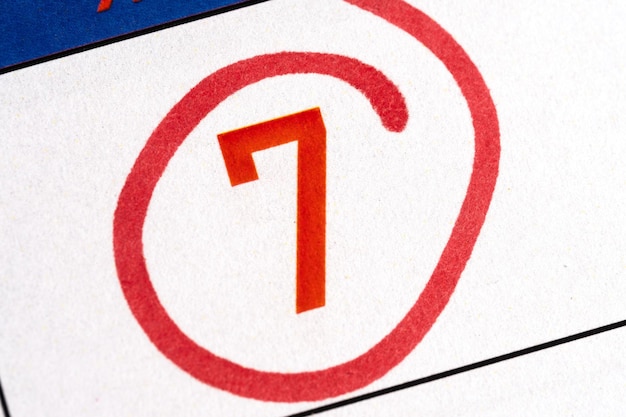Student Loan Forgiveness Deadline Extended: What You Need to Know (Updated)

The student loan forgiveness application deadline has been extended to March 2025, providing borrowers with additional time to apply for relief under the updated program guidelines, but it’s crucial to stay informed about eligibility criteria and any potential legal challenges.
The deadline for the student loan forgiveness application has been extended, offering a lifeline to many borrowers. The **updated: student loan forgiveness application deadline extended to March 2025** provides additional time for individuals to apply and potentially benefit from the program. Understanding the details of this extension is crucial for anyone with outstanding student loan debt.
Understanding the Student Loan Forgiveness Extension
The Biden-Harris administration has announced an extension to the student loan forgiveness application deadline. This means borrowers now have more time to prepare their applications and seek potential debt relief. However, it’s essential to understand the reasons behind this extension and what it entails for eligible individuals.
Why Was the Deadline Extended?
Several factors contributed to the decision to extend the application deadline. One primary reason is to ensure that as many eligible borrowers as possible have the opportunity to apply. There may be individuals who were previously unaware of the program or who needed more time to gather the necessary documentation.
Who Benefits from This Extension?
- Borrowers who were previously unaware: Individuals who didn’t know about the program now have additional time to apply.
- Those needing more time to prepare: Borrowers who required extra time to gather documents or complete the application process benefit from the extension.
- Individuals facing challenges: Anyone facing difficulties in understanding the application process now has more time to seek assistance.
The extension aims to minimize the risk of excluding eligible borrowers due to administrative or informational barriers. By providing more time, the administration hopes to maximize the number of people who can benefit from the student loan forgiveness program.
In conclusion, extending the student loan forgiveness application deadline provides a crucial opportunity for more borrowers to access potential relief. It addresses information gaps and preparation challenges, ensuring a fairer chance for everyone to benefit from the program.
Eligibility Criteria for Student Loan Forgiveness
Understanding the eligibility criteria is paramount before applying for student loan forgiveness. The program has specific requirements that borrowers must meet to qualify for debt relief. Being aware of these criteria will help you determine your eligibility and avoid any potential issues with your application. Make sure that your application will fall under the **updated: student loan forgiveness application deadline extended to March 2025** guidelines.
Key Eligibility Requirements
Several factors determine whether you are eligible for student loan forgiveness. These typically include:
- Income thresholds: There are limits to how much a borrower can earn to qualify.
- Loan types: Some loan types might not be eligible for forgiveness.
- Employment requirements: Some programs require specific types of employment.
Navigating the Eligibility Requirements
To navigate the eligibility requirements effectively, it’s essential to consult official sources and resources. The Department of Education’s website and other reliable sources provide detailed information on the criteria you must meet to qualify for forgiveness. Ensure all criteria are up to date for the **updated: student loan forgiveness application deadline extended to March 2025.**

Knowing and meeting the eligibility criteria ensures that your application has the best chance of being approved. Take the time to understand these requirements fully before proceeding with your application to avoid potential setbacks.
In summary, ensuring that you thoroughly understand and meet the eligibility requirements is crucial for a successful student loan forgiveness application. By checking income thresholds, loan types, and employment criteria, you can assess your eligibility and proceed confidently.
How to Apply for Student Loan Forgiveness
The application process for student loan forgiveness is straightforward, but it requires attention to detail. Following the correct steps and providing accurate information can ensure a smooth application process. Make sure to remember that the application for **updated: student loan forgiveness application deadline extended to March 2025** is the same.
Step-by-Step Application Guide
Here’s a step-by-step guide to help you through the application process:
- Gather required documents: Collect all necessary documents, such as loan statements and income verification.
- Complete the application form: Fill out the application form accurately and completely.
- Submit your application: Submit the application through the appropriate channels.
Common Mistakes to Avoid
To ensure your application is processed smoothly, avoid these common mistakes:
- Providing incorrect information: Double-check all information for accuracy.
- Missing required documents: Include all necessary documents with your application.
- Failing to meet deadlines: Submit your application before the extended deadline in March 2025.
Avoid these pitfalls by taking your time and ensuring all details are correct before submitting your application. Careful attention to detail can prevent delays or denial.
In conclusion, applying for student loan forgiveness involves gathering necessary documents, completing the application form accurately, and submitting it through the correct channels while avoiding common mistakes such as providing incorrect information or missing deadlines. With careful attention to detail, you can improve your chances of a successful application under the **updated: student loan forgiveness application deadline extended to March 2025** guidelines.
Understanding Potential Legal Challenges
The student loan forgiveness program has faced legal challenges that borrowers should be aware of. Understanding these challenges and their potential impact can help you prepare for possible changes or delays in the program. It’s also important to stay on top of any changes regarding the **updated: student loan forgiveness application deadline extended to March 2025**.
Overview of Legal Challenges
Several legal challenges have been filed against the student loan forgiveness program. These challenges often focus on the program’s legality and scope, questioning the administration’s authority to implement such widespread debt relief.
How Legal Challenges Might Affect Borrowers
Here are some potential ways legal challenges might affect borrowers:
- Delays in processing: Legal challenges could cause delays in the processing of applications.
- Changes to eligibility: The outcome of legal challenges could alter the eligibility criteria.
- Termination of the program: In some scenarios, legal challenges could lead to the termination of the program.
Keeping an eye on these legal developments can help you stay informed and prepared for any potential changes that might impact your eligibility or the processing of your application. Ensure that you stay up to date with information regarding **updated: student loan forgiveness application deadline extended to March 2025.**

While legal challenges add uncertainty to the student loan forgiveness program, staying informed about these developments can help you navigate potential changes. By understanding their possible impacts, you can be better prepared for any outcomes.
In conclusion, recognizing potential legal challenges to the student loan forgiveness program is crucial for borrowers. Staying informed about these challenges, understanding their potential effects, and preparing for possible changes can help you navigate the uncertain landscape of student loan relief.
Resources for Staying Informed
Staying informed about the student loan forgiveness program is crucial, especially given the ongoing legal and policy changes. Reliable resources can provide accurate updates and guidance to help you navigate the process. Make sure that you are up to date when it comes to the **updated: student loan forgiveness application deadline extended to March 2025** guidelines.
Official Government Websites
Consult official government websites for the most accurate and up-to-date information. These websites, such as the Department of Education, offer comprehensive details about the program, eligibility requirements, and application processes.
News Outlets and Financial Advisors
For reliable news and updates, consider the following:
- Reputable news outlets: Follow news organizations with a track record for accurate reporting.
- Financial advisors: Consult with financial advisors who specialize in student loans.
These sources can provide timely insights and guidance, helping you stay informed about the latest developments and make informed decisions.
Staying updated will ensure that you are well-prepared to take advantage of any changes or updates, especially regarding the **updated: student loan forgiveness application deadline extended to March 2025**.
In summary, staying informed about the student loan forgiveness program requires consulting official government websites and following reputable news outlets, as well as considering advice from financial advisors, to ensure you have the most accurate and up-to-date information.
Planning Your Financial Future
The extension of the student loan forgiveness application deadline offers an opportunity to reassess your financial plans. Whether you are eligible for forgiveness or not, taking steps to secure your financial future is essential. There are many options that might affect the **updated: student loan forgiveness application deadline extended to March 2025.**
Budgeting and Savings Strategies
Develop budgeting and savings strategies to manage your finances effectively. Creating a budget can help you track your income and expenses, allowing you to identify areas where you can save money. Setting financial goals and creating a savings plan can help you achieve long-term financial stability.
Seeking Financial Counseling
Working with a financial counselor can provide personalized guidance and support. A financial counselor can help you:
- Assess your financial situation: Evaluate your current financial standing.
- Develop a financial plan: Create a roadmap for achieving your financial goals.
- Manage debt: Develop strategies for managing and reducing your debt.
Professional advice can give you the tools and knowledge you need to make informed decisions about your financial future.
In conclusion, securing your financial future involves reassessing your financial plans, developing budgeting and savings strategies, and seeking financial counseling. By taking proactive steps, you can achieve long-term financial stability, regardless of the outcome of the student loan forgiveness program or the **updated: student loan forgiveness application deadline extended to March 2025**.
| Key Point | Brief Description |
|---|---|
| 🗓️ Extended Deadline | The application deadline now extends to March 2025. |
| ✅ Eligibility | Meeting income and loan type requirements is essential. |
| 📝 Application | Gather necessary documents and complete the form accurately. |
| ⚖️ Legal Challenges | Be aware of possible legal challenges that could affect the program. |
Frequently Asked Questions (FAQ)
▼
The application deadline has been extended to March 2025. This extension provides additional time for eligible borrowers to apply for student loan forgiveness under the current program guidelines.
▼
Eligibility typically depends on factors like income thresholds, the type of loan (e.g., federal loans), and, in some cases, employment requirements. It’s important to review the specific criteria outlined by the Department of Education.
▼
To apply, gather all required documents (like loan statements), then complete the application form accurately on the official government website. Be sure to submit before the extended deadline to ensure your application can be processed.
▼
The student loan forgiveness program faces legal challenges questioning its legality and scope. These challenges could lead to delays as the courts weigh the challenges to the program’s standing.
▼
For the most accurate and up-to-date information, consult the official website of the Department of Education. Reputable news outlets and financial advisors specializing in student loans can also offer reliable insights.
Conclusion
The extension of the student loan forgiveness application deadline to March 2025 offers a significant opportunity for borrowers to apply for potential relief. By understanding the eligibility criteria, application process, and potential legal challenges, you can make informed decisions about your financial future. Staying informed and taking proactive steps is key to navigating this complex landscape.
